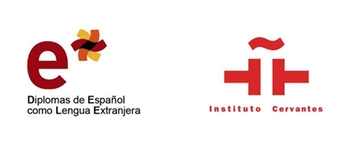LANGUAGE
KEEP CALM & LEARN THE LANGUAGE
Being able to speak the language is the best way to become integrated into Spanish life. Your ability to express yourself will determine how you will be treated by the people you meet – from your neighbors, to academic peers and archive staff – and will be taken as the measure of your general sophistication and your interest in and knowledge of the country. Communication problems can be particularly onerous for adult companions – do not underestimate the difficulty of being on your own in the public world without basic knowledge of the language. Any preparation and review will be beneficial in terms of gaining work time and avoiding personal frustration. Look into language courses at a community college or university brush-up courses.
Scholars whose host institutions have been in Catalonia, the Basque Country, Galicia, Valencia, and the Balearic Islands have discussed the comparative influence of these languages in public and university life. Their descriptions are contained in the language section in the Commission’s practical city guides. At times it can be difficult to connect with locals without a basic understanding of the local language, and some research groups even use the local language primarily amongst themselves. Simply put, at minimum get a dictionary and practice some opening sentences before arrival.
ADVICE FROM FORMER GRANTEES
“My Spanish level was adequate and I expected it to improve naturally by reading and speaking with people. For the first month this was true, but then I hit a wall. Work and my personal life kept me from doing anything about this until January when I signed up for a course. Besides giving some external structure to my day, it made me sit down and look at a grammar book. I would suggest that anyone who feels uncomfortable with their level of Spanish take a class around the second month.”
“The issue of language, its uniformity under the guidelines of the Royal Academy, its pronunciation, etc. has been a hot topic over the course of the year. I do not speak the Madrid dialect, and neither do most of the Americans who learn Spanish in the U.S. On a number of occasions I was “corrected” for speaking a perfectly acceptable form of American Spanish. If you make the conscious decision to speak Spanish the way you were taught, know that sometimes people will try to correct you.”
GRAMMAR AND LANGUAGE BOOKS
Below are some grammar books and language courses recommended by former grantees. Most of them are available in bookstores, or can be ordered at amazon.com, unless otherwise indicated.
- One highly recommended book for those who know some Spanish or are competent in learning foreign languages is Spanish Grammar, published by Harcourt Brace Jovanovich in the College Outline series.
- Hugo’s Spanish in Three Months includes literary selections read by native Castilians.
- 501 Verbs, 2001 Spanish and English Idioms (Barron’s Educational Series), and Cassell’s Colloquial Spanish are helpful for language review.
- Materia Prima is a highly recommended grammar book you can buy in Spain, with exercises for all levels.
- “Cool Spanish” is an online language site with current colloquial and audio expressions. www.bbc.co.uk/languages/spanish/cool/girls_and_boys_flash.shtml
A website and app that past grantees have recommended is FluentU, though be aware that there is a monthly fee after the 15-day free trial.
For Spanish idiomatic expressions and slang, check out “Pardon My Spanish”: Download File
LANGUAGE CLASSES
All Student (predoctoral) Grantees and Junior Researchers can use up to 250€ of their project stipend on Spanish classes or classes in the regional language of the city in which you are living (Catalan, Basque, Galician, etc., as applicable). However, the Commission strongly advises against using all of your project allowance for language classes as most grantees who do later regret not being able to devote some of these funds toward their side project or attending academic conferences. A quick Google search will bring up a list of language academies in your host city. A list of academies recommended by past grantees will also be included in your city guides, when available.
Classes must be begun by January 2022 and must be taken at an academy, not privately (clases particulares). Please submit your funding request via the designated Google Form and upload your receipt(s) to your individual receipts folder.
If you are looking for something more informal, check out the section on intercambios on the Being a Cultural Ambassador page.
DELE EXAM

The DELE exam is the official accreditation of the degree of fluency of the Spanish Language, issued and recognized by the Ministerio de Educación, Cultura y Deporte of Spain. The Instituto Cervantes is the institution in charge of organizing the exams, while the Universidad de Salamanca is in charge of the preparation, correction, and final evaluation of all the tests. The exam is administered various times throughout the year, usually from April to November. The 500€ project stipend cannot be used to cover exam costs.
For more information, please visit the Instituto Cervantes’ website or write to their informational email address directly: infodele@cervantes.es.